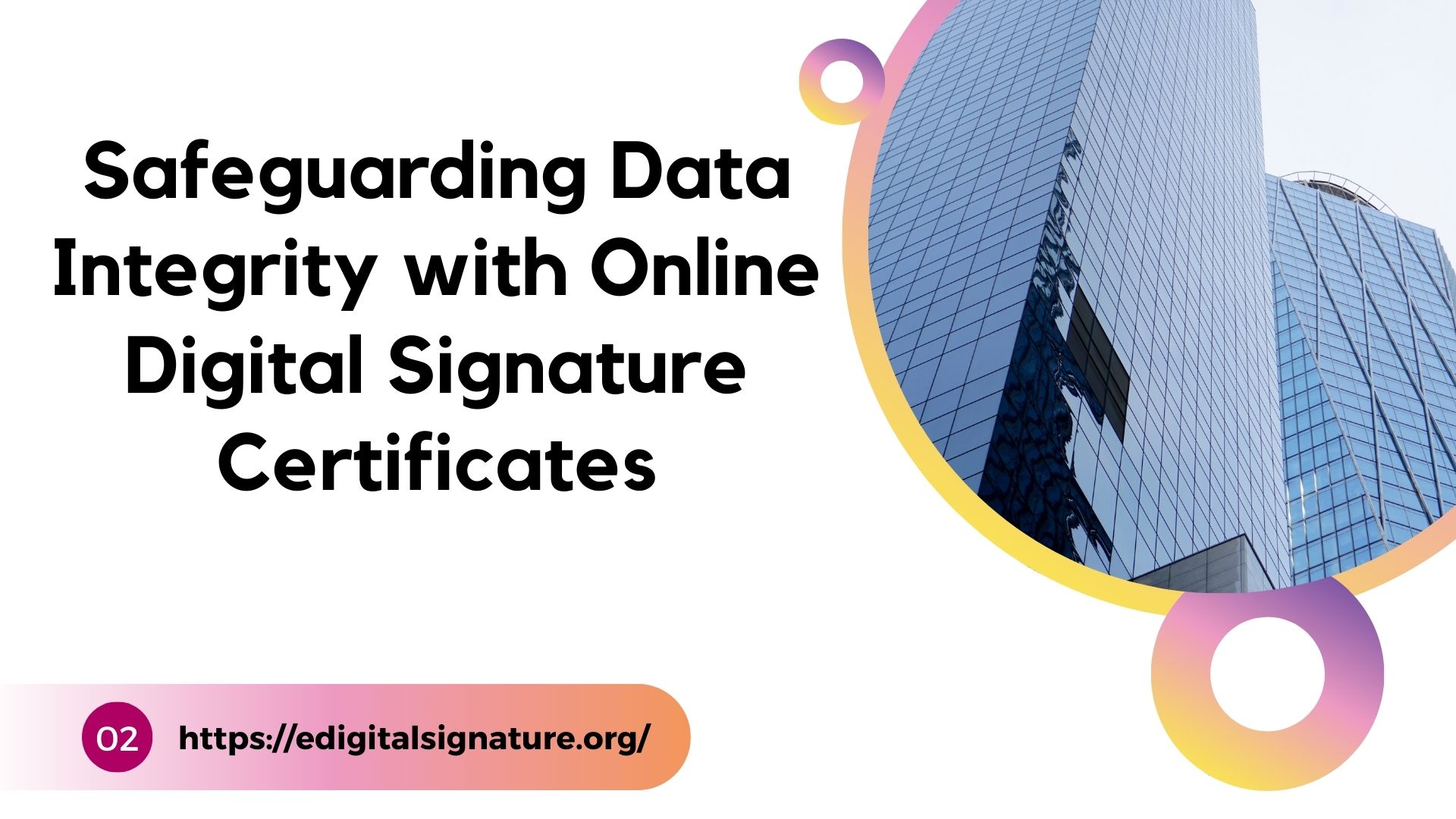Introduction
In today’s interconnected world, where data is constantly being exchanged and shared across various platforms, ensuring the integrity and authenticity of digital information is of paramount importance. Online transactions, electronic documents, and sensitive communications require robust security measures to protect against unauthorized alterations or falsifications. One such powerful security tool is the Online Digital Signature Certificate (DSC). In this article, we will explore the significance of digital signature certificates, their working principles, and how they play a crucial role in protecting data integrity in the digital realm.
Understanding Digital Signature Certificates
Digital Signature Certificates, also known as DSCs, are cryptographic tools used to verify the identity of individuals or entities involved in digital communications and transactions. They rely on asymmetric encryption algorithms to create unique digital signatures that accompany digital documents, ensuring their authenticity and integrity. A DSC is issued by a trusted Certification Authority (CA) and contains the certificate holder’s public key, along with other relevant information such as the certificate’s validity period and the CA’s digital signature.
How Digital Signature Certificates Work
When a user digitally signs a document using their DSC, a complex mathematical algorithm generates a unique hash value or digital fingerprint of the document’s content. This hash value is then encrypted using the signer’s private key to create the digital signature. This process ensures that any modifications to the document, no matter how minor, will result in a completely different hash value, making it virtually impossible to forge or tamper with the signature.
Upon receiving the digitally signed document, the recipient can use the signer’s public key (available in the DSC) to decrypt the digital signature and verify the document’s integrity. The recipient can also verify the authenticity of the DSC by checking its validity with the corresponding CA’s public key.
Ensuring Data Integrity
Data integrity refers to the assurance that data remains unchanged throughout its lifecycle, from creation to transmission and storage. Digital signature certificates play a pivotal role in safeguarding data integrity by:
Preventing Unauthorized Alterations:
Any modification to a digitally signed document, even a single character change, would invalidate the signature. As a result, recipients can easily detect any unauthorized alterations, ensuring the integrity of the data.
Detecting Tampering:
In scenarios where cyber attackers attempt to tamper with documents during transmission, digital signatures will fail verification, raising an immediate red flag about potential data tampering.
Securing Communication Channels:
Digital signatures can be used to secure communication channels, such as emails, by digitally signing the messages. This ensures that the recipient can verify the sender’s identity and detect any tampering during transit.
Use Cases of Digital Signature Certificates
Digital signature certificates find applications across various domains, such as:
Business Transactions:
In online business transactions, DSCs provide authenticity to contracts, purchase orders, and invoices, preventing fraud and ensuring secure financial transactions.
Government Services:
DSCs are widely used in e-government services for filing taxes, accessing government portals, and signing legal documents, enhancing security and streamlining processes.
Healthcare and Legal Industries:
In healthcare and legal sectors, DSCs ensure the integrity of electronic medical records, legal agreements, and sensitive client information.
Software Development:
Digital signatures are used to verify the authenticity of software updates and downloads, protecting users from malware and ensuring the software’s integrity.
Challenges and Mitigations
While digital signature certificates offer robust data integrity protection, they are not entirely immune to challenges. Some common issues include:
Key Management:
Proper key management is crucial to prevent private key compromise. Regularly updating and protecting private keys is essential to maintain the overall security of the DSC.
Revocation and Expiry:
Timely revocation of compromised or expired certificates is critical to prevent unauthorized use. CAs must maintain a robust certificate revocation mechanism to address this concern.
Legal Validity:
Different countries have varying laws and regulations regarding the legal validity of digital signatures. Ensuring compliance with local laws is essential for widespread adoption.
Suggested Read: Class 3 Digital Signature
Conclusion
In the age of digitization, securing data integrity is a top priority for individuals, businesses, and governments alike. Digital signature certificates provide a potent solution to ensure the authenticity and integrity of digital information, thwarting malicious activities and ensuring trust in digital communications and transactions. By leveraging the power of DSCs, we can continue to build a secure and reliable digital ecosystem that protects our valuable data from the ever-evolving threats of the digital age.





